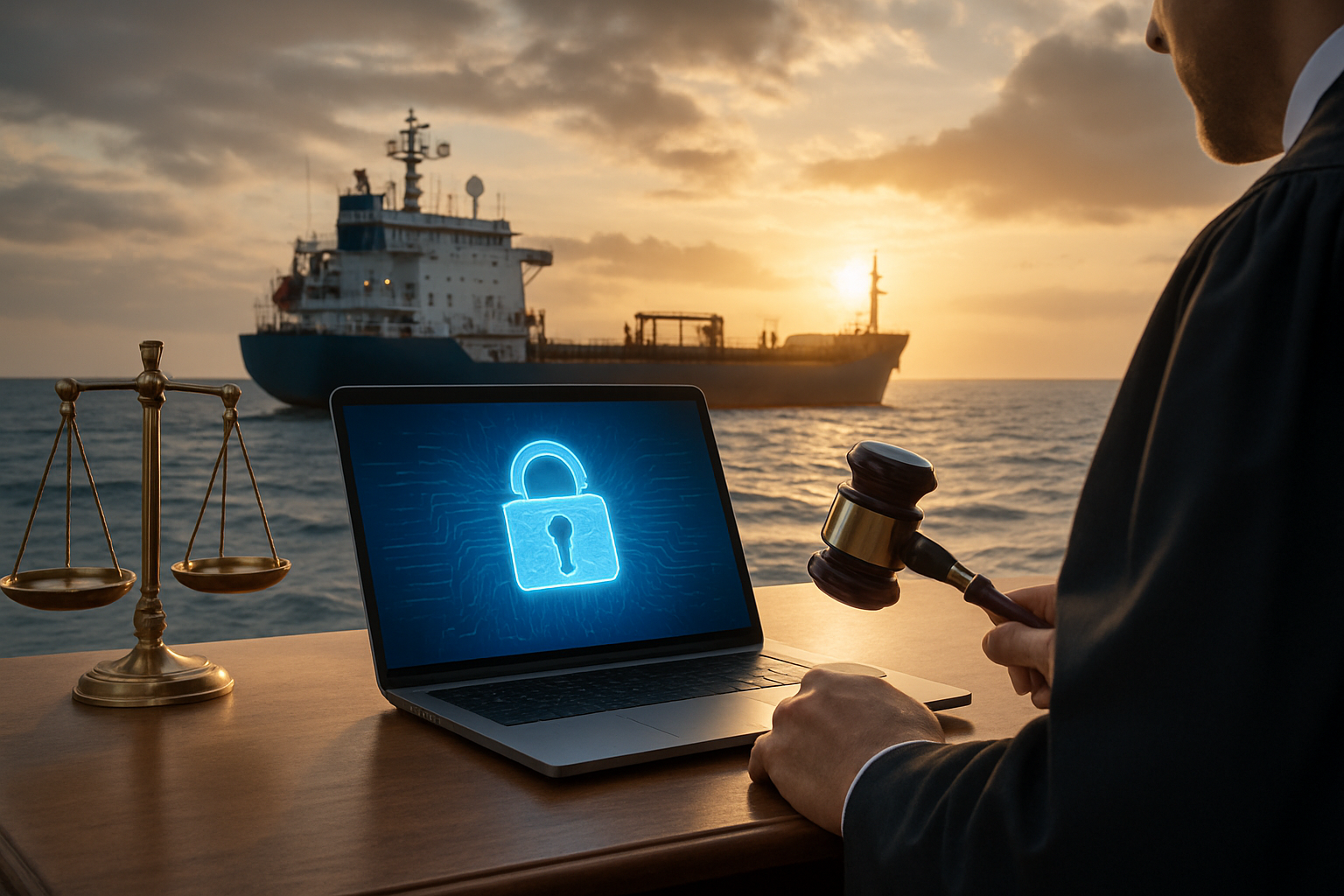The Evolving Landscape of Admiralty Law in the Digital Age
Introduction: In the realm of maritime law, a new wave of challenges is emerging as technology reshapes the shipping industry. From autonomous vessels to cybersecurity threats, admiralty law is navigating uncharted waters. This article explores the transformative impact of digital innovations on maritime legal frameworks and the implications for global trade.

The Digital Revolution in Maritime Operations
The maritime industry is undergoing a profound transformation driven by technological advancements. Autonomous ships, once a concept of science fiction, are now becoming a reality. These vessels, equipped with advanced AI systems and sensors, can navigate without human intervention. Additionally, blockchain technology is revolutionizing shipping documentation, enhancing transparency and reducing fraud in maritime transactions. The Internet of Things (IoT) is also making waves, enabling real-time tracking of cargo and vessel performance. These innovations are reshaping maritime operations and challenging traditional legal concepts.
Cybersecurity and Maritime Law
As ships become increasingly connected and reliant on digital systems, cybersecurity has emerged as a critical concern in admiralty law. Cyberattacks on vessels or port facilities can have devastating consequences, from disrupting global supply chains to endangering crew safety. Legal frameworks are adapting to address these new threats, with international organizations like the International Maritime Organization (IMO) developing guidelines for maritime cybersecurity. Admiralty courts are now grappling with complex questions of liability and jurisdiction in cases involving cyber incidents at sea.
Legal Challenges of Autonomous Vessels
The advent of autonomous ships presents unprecedented legal challenges in admiralty law. Questions arise regarding liability in the event of accidents, the legal status of AI-driven vessels, and the application of existing maritime regulations to unmanned ships. International conventions like the United Nations Convention on the Law of the Sea (UNCLOS) and the International Regulations for Preventing Collisions at Sea (COLREGs) are being reexamined in light of these technological advancements. Lawmakers and maritime organizations are working to develop new legal frameworks that can accommodate the unique characteristics of autonomous vessels while ensuring maritime safety and environmental protection.
Environmental Regulations in the Digital Era
Digital technologies are also influencing environmental regulations in maritime law. Advanced sensors and satellite monitoring systems are enhancing the enforcement of emissions regulations and pollution prevention measures. Blockchain technology is being explored as a tool for tracking and verifying compliance with environmental standards. These developments are reshaping the legal landscape of maritime environmental protection, leading to more stringent and data-driven regulatory approaches. Admiralty courts are increasingly dealing with cases involving the use of digital evidence in environmental disputes, setting new precedents in maritime environmental law.
The Future of Maritime Dispute Resolution
The digital transformation of the maritime industry is also impacting dispute resolution mechanisms in admiralty law. Online arbitration platforms are gaining popularity, offering efficient and cost-effective alternatives to traditional court proceedings. Smart contracts, powered by blockchain technology, have the potential to automate certain aspects of maritime agreements, potentially reducing disputes. However, these technological solutions also raise questions about jurisdiction, the enforceability of digital agreements, and the role of human judgment in complex maritime cases. As admiralty law adapts to these changes, new forms of legal expertise combining maritime knowledge with technological understanding are emerging.
In conclusion, the digital age is ushering in a new era for admiralty law, characterized by unprecedented challenges and opportunities. As technology continues to reshape the maritime industry, legal frameworks must evolve to ensure the safety, efficiency, and fairness of global maritime commerce. The coming years will likely see significant developments in admiralty law as it navigates the complex waters of the digital revolution, balancing tradition with innovation in the pursuit of justice on the high seas.





